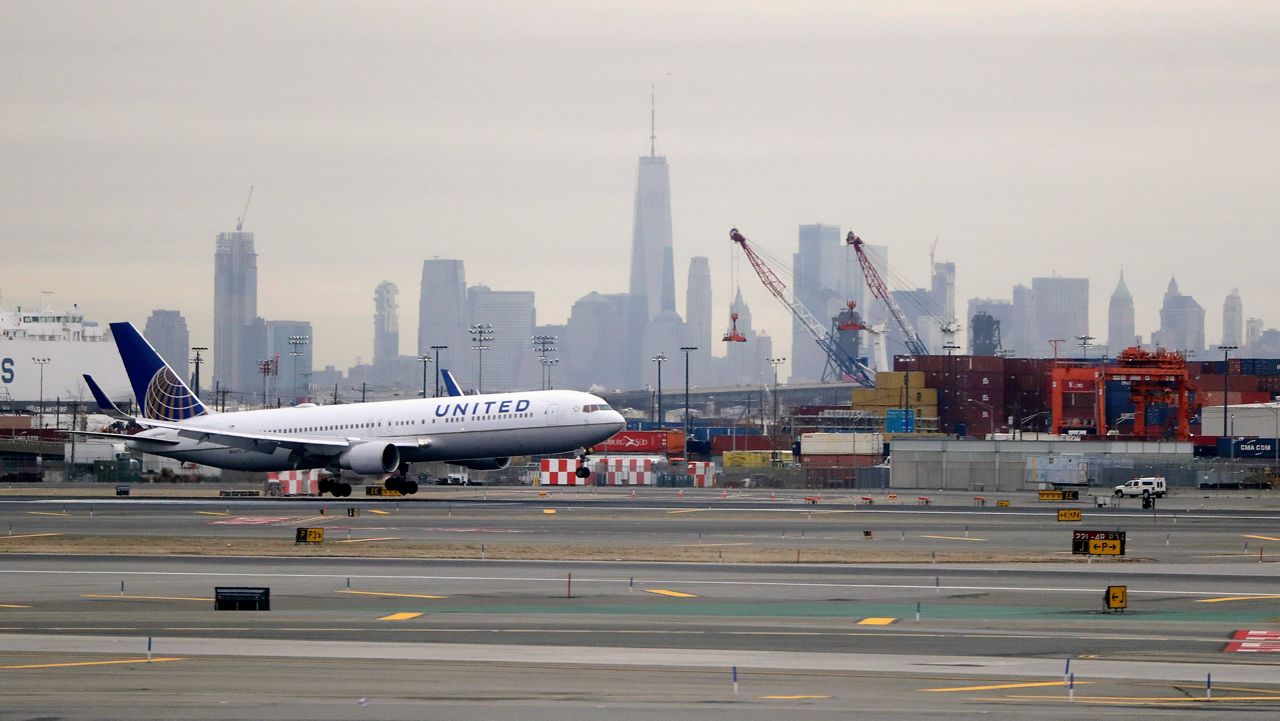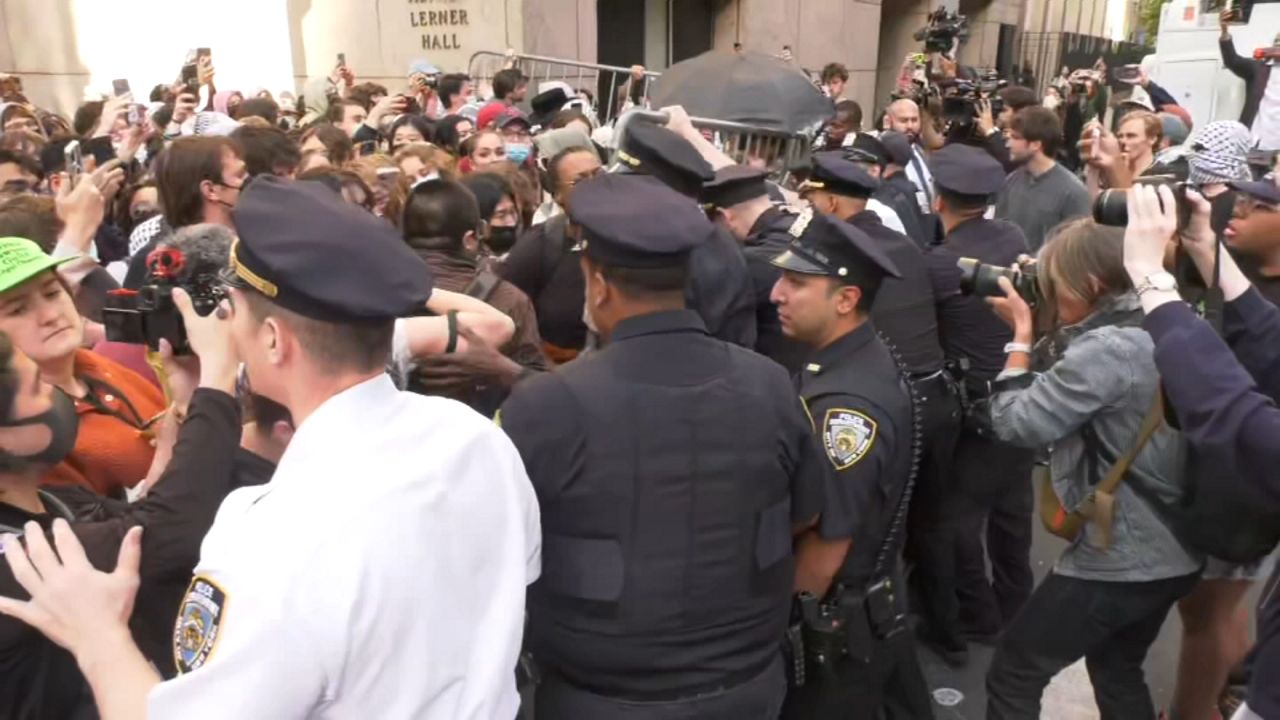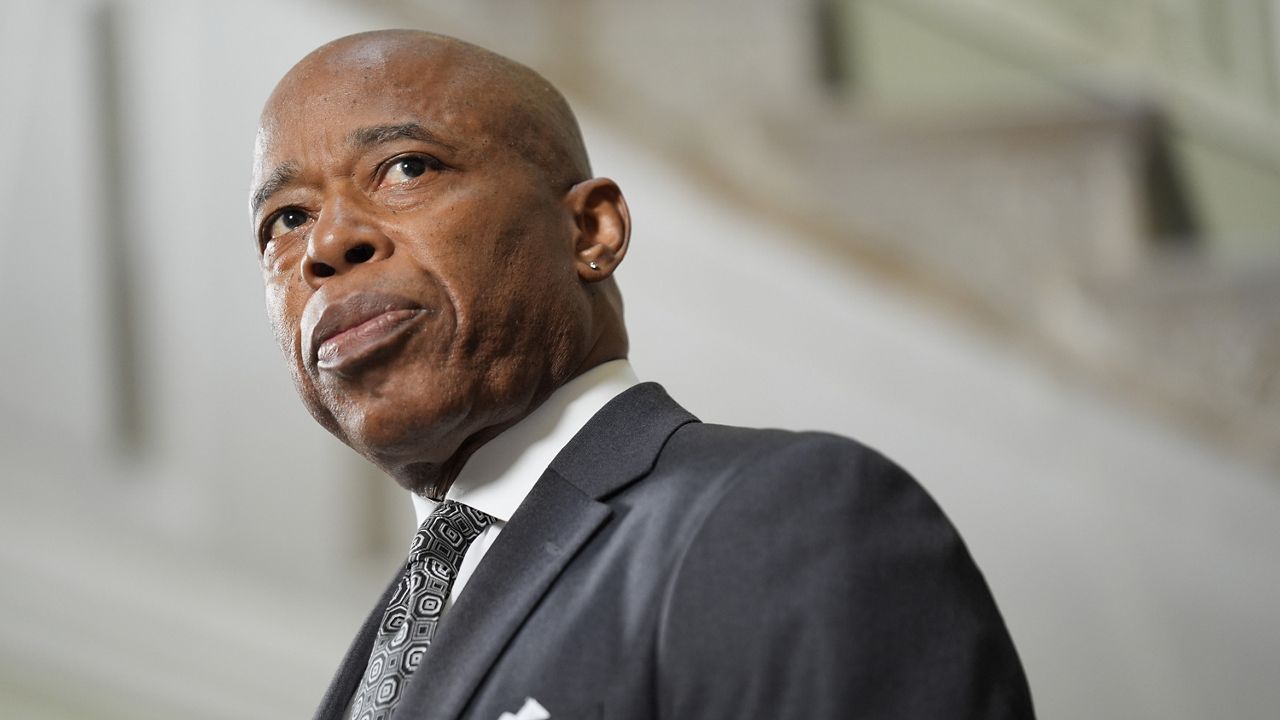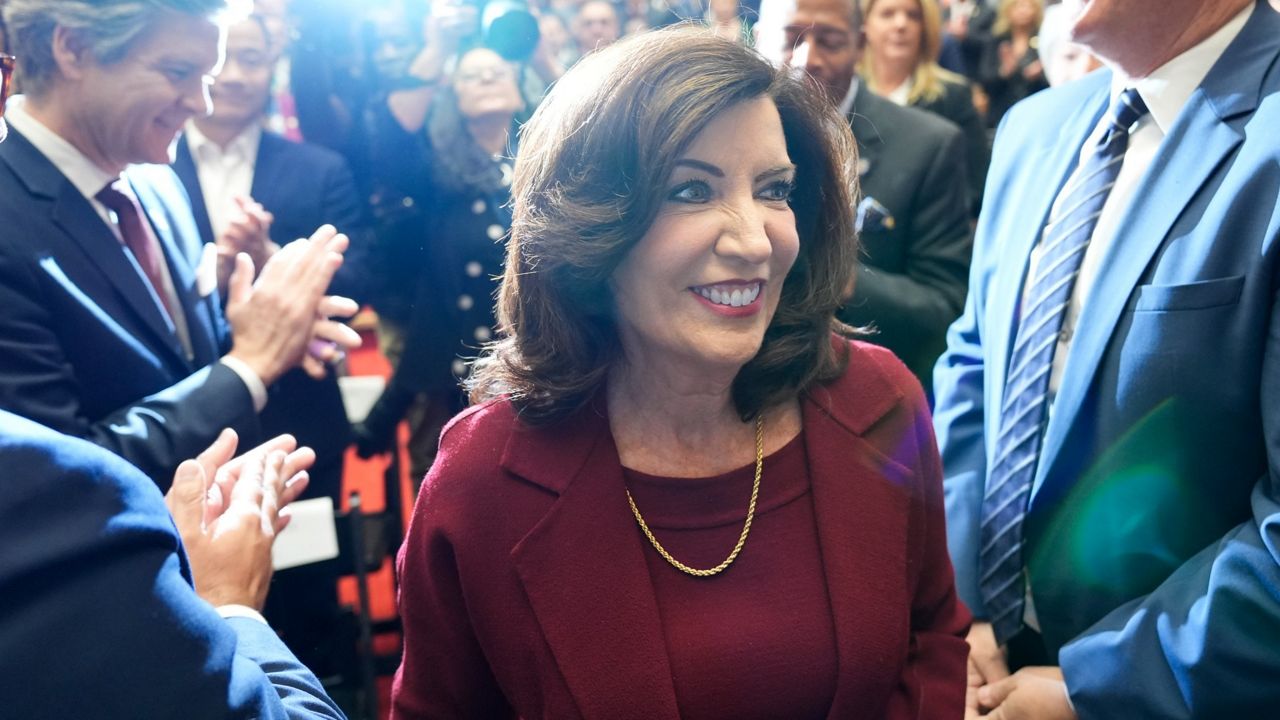It's official: New York City residents will head back to the ballot box 112 days after they voted in the midterm elections.
Mayor Bill de Blasio signed a proclamation Wednesday that set February 26 as the date of the special election for Public Advocate, a race expected to feature more than a dozen candidates.
The date, which was first announced over the weekend, is aimed at maximizing voter turnout, the mayor said. De Blasio said the city will work to make sure all New Yorkers are made aware about the unusual February election.
WHAT DOES THE PUBLIC ADVOCATE DO?
The Public Advocate serves as a government watchdog, although it cannot introduce any legislation in the City Council.
The seat was vacated by Letitia James after she won the November election for New York attorney general.
WHO'S RUNNING?
Some of the candidates running to replace James include:
- Former City Council Speaker Melissa Mark-Viverito
- Brooklyn City Councilman Jumaane Williams
- Queens City Councilman Erich Ulrich
- Manhattan City Councilman Ydanis Rodriguez
- Brooklyn City Councilman Rafael Espinal
- Brooklyn Assemblywoman Latrice Walker
- Manhattan Assemblyman Daniel O'Donnell
- Queens Assemblyman Ron Kim
- Bronx Assemblyman Michael Blake
GET READY FOR WACKY BALLOT LINE NAMES
The election is believed to be the first midwinter, citywide special election without a runoff, as candidates won't be allowed to run on traditional political party lines such as the Democratic Party or Republican Party.
That's leading to some interesting ballot line names:
A SPECIAL ELECTION FREE-FOR-ALL
About a quarter of voters headed to the polls in 2017 in the citywide general election. Observers say this special election may not even crack double-digits.
"The most dedicated voters come out in a special election," said David Birdsell of Baruch College. "This is on no one's radar, it's not baked into your typical expectations."
"This will be a free-for-all, with everyone out there," Democratic strategist George Arzt opined. "There are even some people who have thought about it as a steppingstone for mayor in two years."
Theoretically, a Republican like Ulrich could hold citywide office for the first time since 2007. It's a possibility with many Democrats crowding the field.
New Yorkers aren't done after the February election, though: It would be followed by a general election after, potentially, primaries on the normal Election Day in November 2019.









